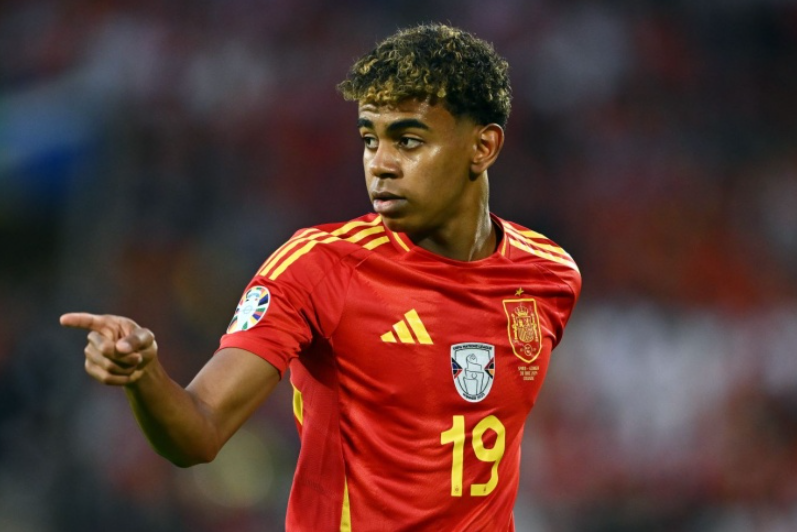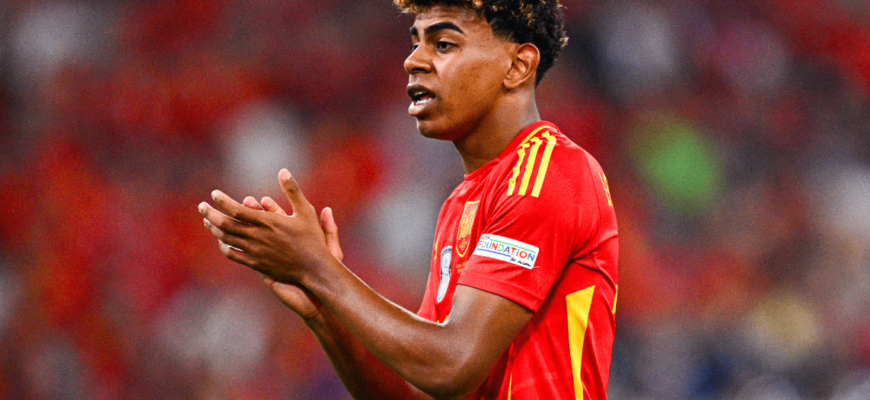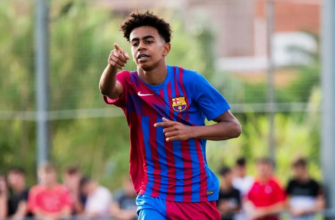During the celebrations of their national team’s victory at Euro 2024, some Spanish fans shamefully directed chants at 17-year-old forward Lamina Yamali, a Muslim player, demanding that he consume the pork-based jamón. According to a report by Jorge Pueyo on the social media platform X, this incident was a disappointing display of intolerance that marred an otherwise joyous occasion.
As an inclusive and diverse sport, football should be a unifying force that brings people together, not divides them. The fans’ behavior toward the young Yamali was disrespectful and went against the principles of mutual understanding and respect that the game embodies. Moving forward, it is crucial that sporting events promote an environment where people of all backgrounds feel welcomed, valued, and free to practice their beliefs without discrimination or harassment.
Confronting Intolerance in Football: The Case of Lamina Yamali
“You have a 16-year-old boy making phenomenal plays, and you’re insulting him by shouting, ‘Lamina Yamali, eat the ham,'” Pueyo wrote. “For some, this is not football, but a celebration of Spanish nationalism based on exclusion and racism.” Yamali is a Muslim, and the Quran prohibits the consumption of pork, from which jamón is made. This religious and cultural difference should have been respected by the fans instead of being used to target and demean the young athlete. The Euro 2024 Championship in Germany took place from June 14 to July 14, with Spain emerging victorious over England 2-1 in the final. This was Spain’s fourth European Championship title, a record for any national team. While the Spanish fans had every right to celebrate their team’s historic achievement, their actions towards Yamali were wholly unacceptable and undermined the spirit of unity and inclusion that football should represent. The incident with Yamali reflects a troubling trend of intolerance and discrimination that has crept into the world of sports, a realm that should be a beacon of unity and respect for diversity.
As the popularity of football continues to grow globally, it is essential that governing bodies, team officials, and fans work together to create an environment where players of all backgrounds feel welcomed, supported, and free to practice their beliefs without fear of harassment or abuse. Yamali’s case is not an isolated incident. Across Europe and beyond, Muslim athletes have faced various forms of discrimination, from derogatory chants to attacks on their religious practices. These incidents not only impact the individuals involved but also send a damaging message to young aspiring athletes from minority communities, discouraging them from pursuing their dreams and participating in the sport they love. In response to the incident, several prominent figures in the football world have spoken out, condemning the fans’ behavior and calling for stronger action to address the issue of intolerance in the sport. La Liga, the top professional football league in Spain, issued a statement expressing its “absolute rejection of any act of discrimination” and pledging to work with authorities to identify and punish those responsible.

Similarly, the Spanish Football Federation (RFEF) has stated that it will not tolerate such acts of discrimination and will take appropriate disciplinary measures against the offending fans. The organization has also emphasized the importance of promoting diversity and inclusion within the sport, and has committed to implementing educational initiatives to foster greater understanding and respect among fans. Beyond the immediate response, there is a need for a more comprehensive and long-term approach to addressing the root causes of intolerance in football. This may involve reforms to fan engagement policies, enhanced security measures, and the implementation of robust diversity and inclusion programs at the grassroots level of the sport.
Additionally, the media and sports commentators have a crucial role to play in shaping the narrative and discourse around incidents like the one involving Yamali. By reporting on these issues with sensitivity and nuance, they can help to raise awareness, challenge harmful stereotypes, and promote a more inclusive and understanding culture within the football community. Ultimately, the success of any efforts to address intolerance in football will depend on the willingness of all stakeholders – from governing bodies and team owners to individual fans – to acknowledge the problem and work together to create a more welcoming and inclusive environment for players, coaches, and spectators of all backgrounds.
The incident with Lamina Yamali is a stark reminder that the beautiful game of football is not immune to the societal challenges of prejudice and discrimination. By confronting these issues head-on and taking concrete steps to foster a culture of respect and understanding, the football community can set an example for the world and fulfill its potential as a unifying force that brings people together, rather than divides them.




